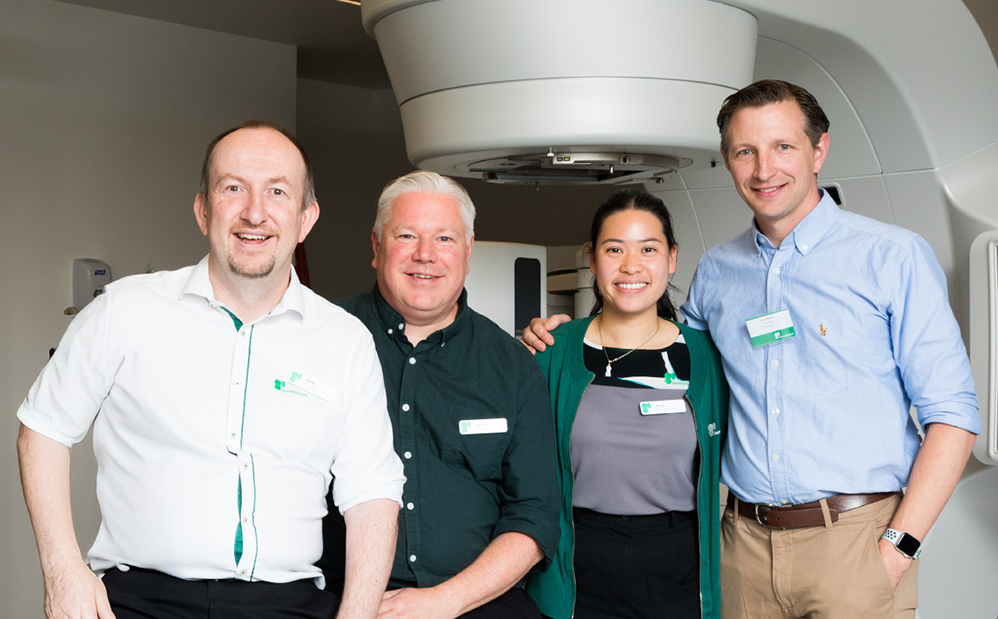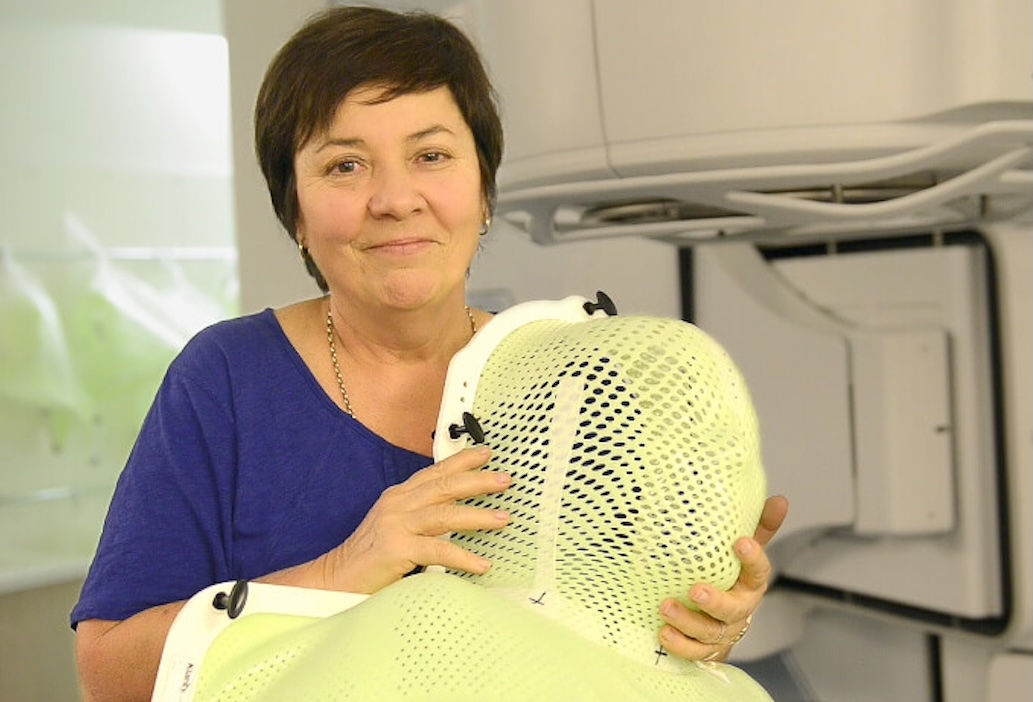- Patients
- Conditions we treat
- Head and neck cancer
What are head and neck cancers?
What are head and neck cancers?
Head and neck cancers are usually categorised by the area of the head and neck region that the cancer starts. These areas include: 1,2
- Mouth (oral cavity) – including the lips, tongue, gums, and other structures inside the oral cavity
- Throat (pharynx)
- Voice box (larynx)
- Nose – including the nasal cavity and sinuses
- Salivary glands
- Skin of the head and neck
There are three main types of head and neck cancer, which are named after the type of cell that the cancer starts in:1,2
- Mucosal squamous cell carcinomas start in the squamous cells, or moist lining, of the mouth, nose, and throat, and account for around 9 in 10 head and neck cancers
- Adenocarcinomas start in the glandular cells of the head and neck area
- Cutaneous carcinomas start in the skin of the head and neck area
Head and neck cancers can be associated with a number of different symptoms, which are usually specific to the type and location of the cancer. However, some general symptoms may include:1,2
- Pain
- Swelling
- Hoarse voice
- Sore throat that doesn’t get better
- Constant coughing
- Difficulty swallowing
- Bad breath
- Unexplained weight loss
These symptoms can occur with conditions other than head and neck cancer. You should make an appointment with your GP or specialist for a check-up or to discuss any concerns or questions that you may have.1,2
There are different risk factors that are associated with head and neck cancers, which may include:1,2
- Smoking tobacco products
- Drinking alcohol
- Infection with the human papillomavirus (HPV)
- Being obese or overweight
- Age over 40 years
- Poor oral or dental health
- Chewing tobacco, betel nut, areca nut, gutka or paan
- Weakened immune system
- Sun exposure
- Certain environmental exposures (e.g. chemicals, wood dusts, asbestos fibres)
- Infection with the Epstein-Barr virus
- Being Aboriginal and Torres Strait Islander
- Past radiation therapy to the head and neck area
- Certain inherited conditions (e.g. Fanconi anaemia, Li-Fraumeni syndrome)
Having one or more of these risk factors does not mean that you will get head and neck cancer.2 Talk to your doctor if you have any questions or concerns.
Make an enquiry
Contact us today to find out how GenesisCare can help you.
Diagnosis
Diagnosing head and neck cancer
A range of tests may be performed to see if you have a head and neck cancer, including3:
- Physical examination: Doctor checks the mouth, throat, nose, ears, neck, and lymph nodes, possibly using touch or simple tools.
- Endoscopy: A flexible tube with a camera is inserted through the nose to examine the nasal passages, throat, and voice box.
- Microlaryngoscopy: A detailed throat and voice box exam done under general anaesthetic using a laryngoscope and microscope.
- Biopsy: A sample of tissue or cells is taken from a suspicious area to check for cancer under a microscope.
- Imaging tests: Scans like CT, MRI, PET, X-rays or ultrasound create detailed images to locate tumours and guide biopsies or treatment.

Find a doctor
Search for Head and Neck Cancer specialists in your state.
Treatment options
Treatment options

Treatment options which may be suitable will differ between individuals.1,2 Factors that can influence which treatment options may be suitable include the stage of disease, where the cancer is located and your general health.2 Treatments that may be offered include:
Radiation therapy - uses a controlled dose of radiation, usually in the form of x-rays, to destroy or damage the cancer cells. Radiation therapy may be used as the main treatment for head and neck cancer or used together with other treatments to treat the cancer or help relieve symptoms.1
Radiation therapy masks
For many types of radiation therapy to the brain, head or neck, a custom-made thermoplastic mask is used to keep your head and neck still and in the right position for treatment. Watch our step-by-step guide to see how these masks are made and what to expect at your planning appointment.
Chemotherapy - uses medications, usually given by injection or tablet, to help kill cancer cells or slow their growth and spread. Chemotherapy can be used in conjunction with other cancer treatments.1
Find a centre
Search for consulting and treatment locations near you.
.
Radiation therapy for head, neck and chest cancers may involve wearing a custom-made immobilisation mask to hold you in exactly the right position during treatment.
This video explains how these masks are made and fitted, and what you can expect at your planning appointment.
Support services
Support services
- Cancer Council Australia. (2025, February 13). Head and neck cancers. Cancer Council. Retrieved October 2025, from https://www.cancer.org.au/cancer-information/types-of-cancer/head-and-neck-cancers
- Cancer Australia. (2025, July 17). Head and neck cancer. Cancer Australia. Retrieved October 2025, from https://www.canceraustralia.gov.au/cancer-types/head-and-neck-cancer
- Cancer Council NSW. (2024, February). Tests for head and neck cancer. Cancer Council NSW. Retrieved October 2025, from https://www.cancercouncil.com.au/head-and-neck-cancer/diagnosis/tests/

You are leaving our website
You are now leaving our website. GenesisCare do not control this content and therefore are not responsible for its accuracy or reliability.
Disclaimer:
This website is provided for information purposes only. Nothing on this website is intended to be used as medical advice, or to diagnose, treat, cure or prevent any disease. It should not be used as a substitute for your own health professional's advice. Any medical procedure or treatment carries risks. Before proceeding with treatment, you should discuss the risks and benefits of the treatment with an appropriately qualified health practitioner. Individual treatment outcomes and experiences will vary.



